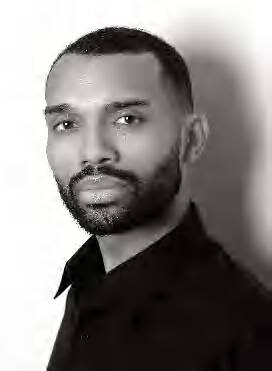The following are excerpts from this book by Bruce Swedien, audio engineer, five-time Grammy winner, and longtime collaborator with Quincy Jones.
"We doubled and triple tracked a lot of our vocals ... it is the phasing of the same voices singing the same parts that creates the desired sound." (pp. vx - vxi)
"... I can record many more genuine stereophonic images by using pairs of tracks, instead of merely single monophonic tracks ... [Michael Jackson's] Off the Wall sold a staggering 10 million copies." (pg. 8)
"Michael vocalizes with his vocal coach ... for at least an hour before he steps up to the microphone to record ... every time we record a vocal!" (pg. 9)
"... he dances through all his vocal performances." (pg. 10)
"... on 8th Avenue [in Manhattan] ... a couple of bums moved in under my sound truck ... They pounded on the bottom of the sound truck and yelled up at us, 'Be quiet up there, you're making too much noise! Why don't you go back to L.A.?'" (pg. 13)
"... Quincy composed and arranged the score for 'The Wiz' on the dining room table in our hotel room ... The first day for recording the large orchestra sessions of the score was on a Monday ... he put off composing and orchestrating the music for those sessions until Sunday night ... by 12:00 noon, we were ready! ... Not one wrong note!" (pp. 14-16)
"... [Michael] even doubles his vibrato rate perfectly!" (pg. 19)
"They don't talk to each other, creativity and money. Not at all ... Quincy listened to about 600 songs just to pick 12 for Thriller! (pg. 25)
"... on LPs, if you have too much time on a side, it minimizes the volume level, and low frequency response, that you can put on a record during mastering ... 18 minutes per side on an LP was just right for good sound." (pg. 30)
"Up until the tremendous success of Thriller, I would hear my white friends say, 'Ray Charles is OK, but Elvis is the guy, you know!' or, 'Stevie Wonder is cool, but check out Billy Joel!'" (pg. 31)
"When we recorded 'Billie Jean' ... I had Michael sing some of his vocal overdubs through a five-foot-long cardboard tube ... MTV almost never aired videos by black performers ... they refused to show 'Billie Jean' ... " (pg. 37)
"... in the late 1970s ... artists had become ... artistically lazy ..." (pg. 38)
"Quincy told me that the title song ["Bad"] ... was going to be a duet for Michael and Prince." (pg. 42)
"Michael asked me to do a dance mix of ["The Way You Make Me Feel"] ... I thought this would be a perfect place to try out my then-brand-new Dbx subharmonic generator to trigger a really low note on the down beats ... The owner of a very popular dance club in Frankfurt [called me] and said, in a thick German accent, 'You owe me eight woofers!'" (pg. 45)
(Engineer Russ Ragsdale) "I once heard someone ask Bruce a question regarding how he would deal with a singer who had the tendency to sing off key a bit, and his response was, 'Get a better singer.' ... pay close attention to the goosebumps; they do not lie." (pg. 72)
"I have a motto and it is short and sweet: 'Music first.' That's all you need to know." (pg. 94)
"You never get back to your instincts. You've got to mix when your instincts are up. I have Quincy Jones to thank for that." (pg. 98)
"I have always felt that in order to trigger an emotional response in the soul of the listener, music, to me, must be close to the primitive ... I got the idea from Duke Ellington in his description of music, and why it appealed to him." (pp. 118-19)
"Your choice of vocal microphone should be made on the basis of the vocal quality of the artist and the sonic personality you want to project, and nothing else." (pg. 120)
"Samuel Johnson called music 'the only sensual pleasure without vice.' " (pg. 119)
Tuesday, June 8, 2010
In the Studio with Michael Jackson
Labels:
audio recording,
Bruce Swedien,
Michael Jackson,
Quincy Jones,
Thriller
Subscribe to:
Post Comments (Atom)

No comments:
Post a Comment